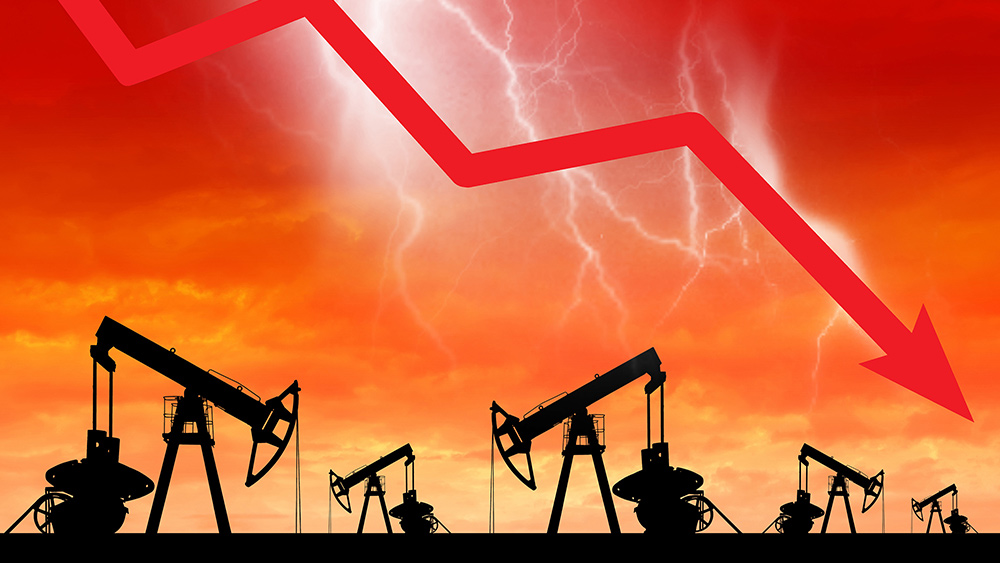
- Oil prices fell sharply as markets saw Iran’s missile strikes as a staged spectacle rather than a real escalation.
- Experts warn the real threat is Iran blocking the Strait of Hormuz, which could triple energy bills.
- Traders viewed Iran’s attack as symbolic, avoiding major damage or casualties to prevent all-out war.
- BP and TotalEnergies evacuated staff from Iraq, signaling lingering instability in key oil-producing regions.
- A blockade of the Strait of Hormuz could trigger global fuel shortages and economic turmoil.
Global oil prices plummeted Monday despite Iran’s retaliatory missile strikes on U.S. bases in Iraq, as markets dismissed the attack as a carefully staged spectacle rather than a genuine escalation. Brent crude dropped 4.1% to $76.20 per barrel after analysts labeled Iran’s strikes as a "well orchestrated" face-saving maneuver targeting largely empty facilities.
But while immediate tensions appear defused, experts warn the real danger lies ahead. If Iran retaliates by choking off the Strait of Hormuz, UK energy bills could skyrocket to "disastrous" levels, potentially tripling to £3,000-£4,500 annually.
Markets dismiss Iran’s "symbolic" retaliation
The dramatic oil price drop signals that traders viewed Iran’s missile strikes as more political theater than a genuine threat to global supply. Analysts noted the precision targeting of facilities with no U.S. casualties, suggesting Tehran deliberately avoided crossing a red line that would trigger an all-out war. At least for now, Iran appears to be trying to save face domestically while preventing further U.S. retaliation.
The lack of serious damage reassured investors that Middle East crude exports would continue uninterrupted in the short term. However, the situation remains volatile, with BP and TotalEnergies evacuating foreign staff from southern Iraq as regional security concerns linger. The evacuations highlight the precarious nature of energy infrastructure in the region, where a single miscalculation could reignite market panic.
Strait of Hormuz blockade looms as a real threat
While markets breathed a sigh of relief Monday, the specter of Iran choking off the Strait of Hormuz—the world’s most critical oil chokepoint—still looms large. If Tehran follows through on its implicit threats to disrupt shipping lanes, the consequences could be catastrophic for global energy markets. UK households, already struggling under rising living costs, could see energy bills surge to "disastrous" levels, with annual costs potentially tripling to between £3,000 and £4,500.
Such a scenario would devastate Western economies already teetering on the brink of recession, while emboldening Iran’s geopolitical leverage. The Strait of Hormuz handles roughly 20% of the world’s oil supply, meaning any sustained disruption would send shockwaves through financial markets and trigger fuel shortages worldwide. Unlike Monday’s symbolic missile strikes, a blockade would represent a direct assault on the global economy—one that could force military intervention.
Oil giants brace for prolonged instability
The preemptive evacuations by BP and TotalEnergies underscore the energy sector’s lack of confidence in regional stability. While the immediate crisis appears to be contained, oil majors are clearly preparing for further unrest. Southern Iraq, home to critical production facilities, remains a flashpoint, and any escalation could disrupt output from OPEC’s second-largest producer.
The fact that oil prices fell despite these evacuations suggests traders are betting on a short-lived conflict. But this optimism may prove premature. Iran has a long history of asymmetric warfare, and its proxies across the Middle East could launch covert attacks on energy infrastructure in the coming weeks. If supply disruptions materialize, the current price drop could reverse violently.
Monday’s market reaction reveals a cautious belief that Washington and Tehran have stepped back from the brink—for now. Yet the underlying tensions remain unresolved, and the risk of a catastrophic miscalculation persists. While oil traders celebrate the dip, consumers should brace for potential chaos if Iran shifts tactics. The Strait of Hormuz remains the ultimate geopolitical powder keg, and its closure would make today’s price drop a distant memory.
Sources for this article include:
Please contact us for more information.



















